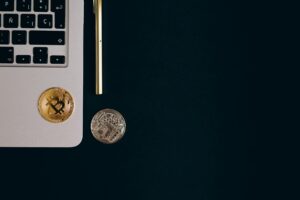
An emergency fund is a way to ensure that you are financially stable to overcome surprises in a world full of uncertainties. If you stay in the UAE, you may want to consider having an emergency fund as the cost of living can be very high. What an emergency fund does to your financial situation is that it acts as a safety net for you. This allows you to be able to cover unexpected expenses such as medical bills, house/car repairs, or even the event that you lose your job.
Why you may need an emergency fund?
People who have an emergency fund set aside tend to have peace of mind. They say that life can be unpredictable sometimes. If you are not ready for them, unexpected expenses can easily affect your financial stability. In the UAE, where the cost of healthcare, education, and living expenses can be very high, you may want to consider having an emergency fund set aside. This is important as it can help you avoid unnecessary debt or financial stress, especially during difficult situations. With such a financial strategy in place, you will not have rely on loans or credit cards – both of which usually come with high-interest rates. Moreover, if you have an emergency fund, you tend to have the flexibility to make better financial decisions in the long-term. For example, if you lose your job, you won’t feel the stressful pressure to take any shitty job that is available on offer. Instead, if you are backed by a sufficient emergency fund, you will take your time to find the right opportunity that fits your career goals.
Emergency fund: How much money should you save?
If you are thinking of setting an emergency fund aside, the total size of the money will usually depend on different factors. This usually include your monthly expenses, lifestyle, and family responsibilities. Experts have recommended that people save about three to six months’ worth of their income or living expenses. There are cases where it may be recommended that you set aside a larger stash of funds which can be anywhere between nine and twelve months worth of your income or living expenses.
Emergency fund: A reliable way to calculate how much you need
- To start calculating how much you will need for an emergency fund, you should begin by listing out all the essential items that make up your monthly expenses. In this case, you may want to consider rent, utility bills, groceries, transportation, and other monthly expenses.
- As soon as you have calculated what you will be spending every month, you can then proceed to multiply what you have by any number ranging from three to six. The result of this calculation is that it will give you the range that you need to save up for your emergency fund. For example, let us assume that your monthly expenses amount to AED 10,000. After performing the calculation, the emergency fund that you will need to save up should be between AED 30,000 to AED 60,000.
- When saving some money for emergency, you should think about your lifestyle. This will go a long way to determining how much you should have ready for a rainy day. This means that you have to consider whether you have a family, a home, or have children who are studying in school. If any of this is the case, it means that you may want to increase the total amount of the funds that you will need for emergency.
Where to Keep Your Emergency Fund
As soon as you have been able to calculate the total amount of money that you will be needing in the case of an emergency, the next step for you is to decide where you will be saving the money. In normal circumstances, you should be able to easily access your emergency money just in the case that you have some urgent needs. You may choose to put this money for it to earn some interest for you. Some common options for you to keep an emergency fund include savings accounts, fixed deposits, money market accounts, and so on.


